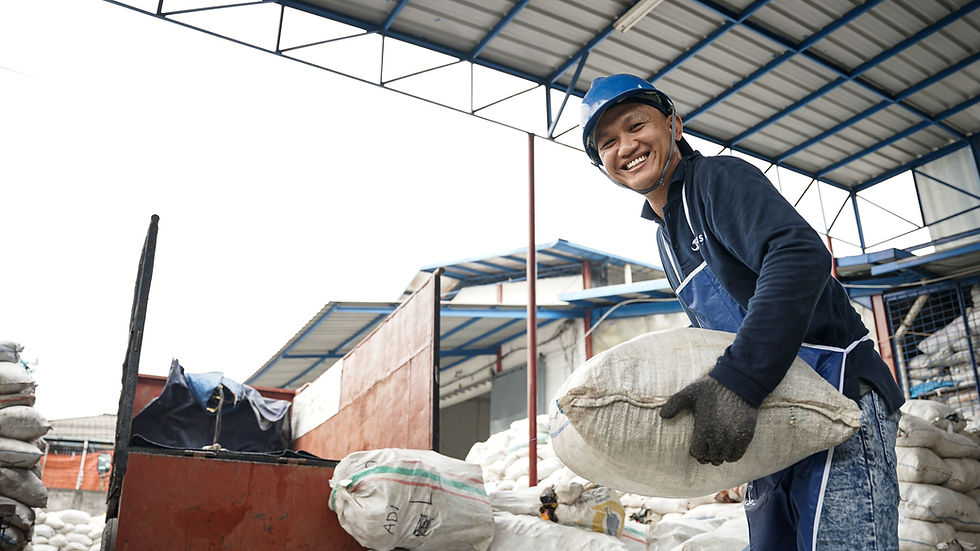Local efforts contributes to the global issue of plastic pollution
- packtech1946
- Aug 21, 2020
- 2 min read
Updated: Jun 30, 2022
By establishing our cleanup ecosystems in local coastal communities, we are contributing to better management of plastic waste.

Indonesia is the second-largest contributor after China to the ocean plastic crisis, and a main reason for this is the lack of proper waste management if plastic waste. Due to ineffective waste management and infrastructure capacity in coastal communities, there are very little resources to stop plastic debris from polluting the marine ecosystem, according to a published 2020 study*.The study points out the necessity of proper waste management systems to prevent waste leaking into the ocean, and that there’s very little the communities can do alonedue to the lack in waste management solutions.
ReSea Project address this issue by setting up cleanup ecosystems in local communities near rivers and coastal areas. By doing this we address the issue of bad waste infrastructure by employing people in the local communities to recover marine debris, sort it, and store it until it is being transported to a waste bank. Not only are we tackling the amounts of plastic already littering the waters, we also raise awareness and prevent plastic waste from being dumped directly into rivers and the sea. As our movement grows, so does or impact, meaning that our mission is to establish cleanup ecosystems in the worst affected areas with bad waste management to remove plastic debris to prevent it from harming the ecosystems. We hope our presence in Indonesia will lead and aspire local governments to improve efforts to ban single-use plastic, improve waste management and recycling solutions in local communities. Our cleanup solution is set up in so far four local communities near rivers and coastal areas to address both poverty and waste mismanagement. With the employment of nearly 50 cleanup members, we are fighting poverty, creating economic growth in local communities, and recovering plastic from rivers and the ocean to prevent it from harming marine life, the ocean ecosystems, and society.
*Source: https://journals.plos.org/plosone/article?id=10.1371/journal.pone.0236149
Authors: Anna (Anya) Phelan, Helen Ross, Novie Andri Setianto, Kelly Fielding, Lengga Pradipta.



Comments